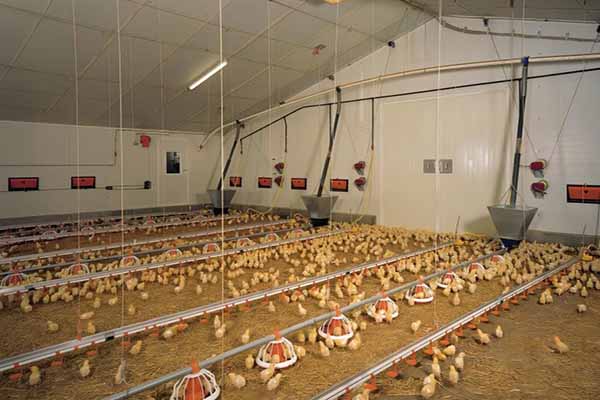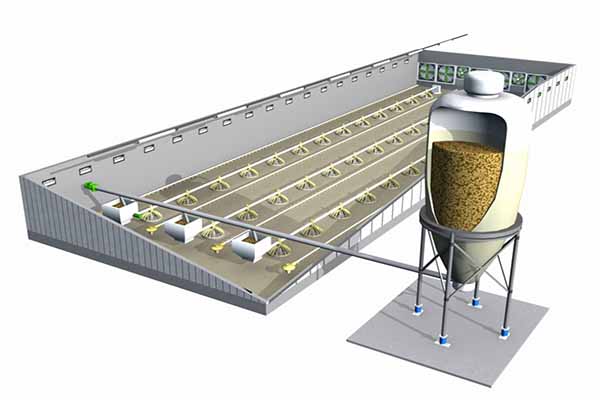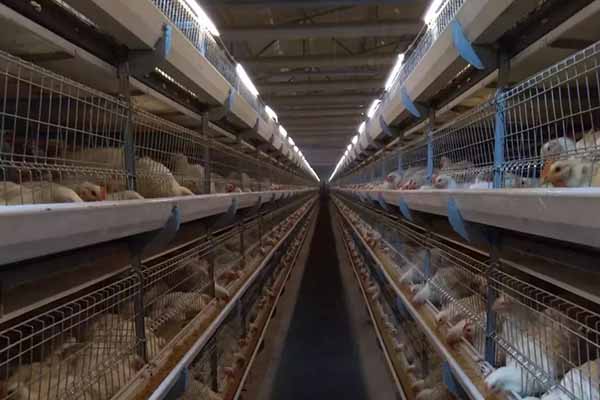How to Start an Organic Chicken Egg Farm
Time : 2025-07-02
Embarking on the journey to start an organic chicken egg farm is a commendable goal, as there is a growing demand for organic products in the market. This article provides a comprehensive guide on how to begin this venture, ensuring you are well-equipped with the knowledge and practical steps needed to run a successful organic chicken egg farm. Let’s dive in.
Understanding the Organic Market
Before setting up your organic chicken egg farm, it’s crucial to understand the market dynamics. Organic products have a premium price tag, which is a reflection of their higher quality and ethical production methods. Consumers are increasingly aware of the health and environmental benefits of organic foods, making this market a promising one.
Market Research
Conduct thorough market research to identify potential customers and competition. Look for demographics that value organic products and assess the competition to understand the market saturation and potential gaps in the market.
Legal Requirements and Certification
Running an organic chicken egg farm means adhering to strict legal and certification requirements. Here’s what you need to know:
Legal Compliance
Understand the local and national regulations governing organic farming. This includes zoning laws, waste management, and environmental protection measures. Obtain any necessary permits or licenses to operate your farm legally.
Certification Process
Obtaining organic certification is essential to validate your farm’s organic status. Contact a recognized organic certification body to begin the certification process. They will assess your farming practices, animal welfare, and environmental management.
Choosing the Right Location
The location of your organic chicken egg farm plays a crucial role in its success. Here are some factors to consider:
Climate
Select a location with a climate suitable for chickens. Ensure the area has moderate temperatures and plenty of daylight hours, as chickens need a consistent environment for optimal egg production.

Availability of Resources
Access to fresh water and suitable feed sources is crucial. Choose a location near water sources and a reliable supply of organic feed ingredients.
Breeding and Housing
Choosing the right chicken breed and providing suitable housing is vital for the health and productivity of your chickens.
Breeds
Consider breeds that are known for their laying productivity and adaptability to organic farming conditions. Some popular choices include the Orpington, Rhode Island Red, and Barnevelder.
Housing
Build or purchase housing that meets organic standards. The coop should provide ample space for the chickens to move around and lay eggs. Ensure good ventilation, temperature control, and protection from predators.
Feeding and Nutrition
The diet of your chickens is crucial for their health, egg quality, and overall productivity.
Organic Feed
Source organic feed that is free from genetically modified organisms (GMOs), pesticides, and antibiotics. You can grow your own organic feed or purchase from a reliable supplier.
Water and Supplements
Ensure a constant supply of fresh water. Supplements can be added to the diet to support health and egg quality, but only use organic and natural supplements.
Animal Welfare and Health
Animal welfare is a cornerstone of organic farming. Implement the following practices:
Regular Health Checks
Conduct regular health checks and consult with a veterinarian to address any health issues promptly.
Animal Handling
Handle chickens with care to avoid stress, which can affect egg production and quality.
Marketing and Distribution
Develop a solid marketing plan to reach your target audience and establish distribution channels.
Branding
Create a strong brand identity that reflects the organic nature of your products. Use high-quality images and messages that resonate with environmentally conscious consumers.
Distribution Channels
In addition to local farmers’ markets and organic stores, consider online sales platforms to expand your market reach.

Financial Planning
Running an organic chicken egg farm requires careful financial planning to ensure sustainability and profitability.

Budgeting
Prepare a detailed budget that accounts for all startup costs, ongoing expenses, and income projections.
Financing
Explore financing options such as loans, grants, or investors to fund your venture.
Conclusion
Starting an organic chicken egg farm is a rewarding endeavor that requires thorough planning, adherence to organic standards, and a commitment to animal welfare and environmental sustainability. By following this guide, you’ll be well on your way to establishing a successful and sustainable organic chicken egg farm.











